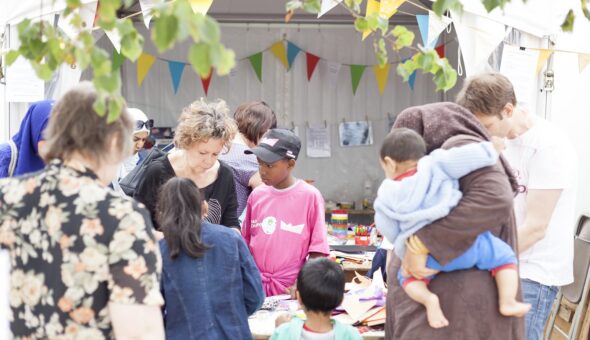Dr Sophie Parsons (Mechanical Engineering) was awarded £500 to run a dialogue event on microbial biotechnology.
Sophie used her grant to hold an event at the Watershed in Bristol on 15th June 2017. The event was about microbial biotechnology, in which she began with a 25 minute presentation to give an introduction to the area. This included background on sustainability challenges the technology could contribute towards addressing, along with potential applications, benefits and concerns.
After the presentation, the audience were asked to write down the one or two words that they feel represent her talk on microbial biotechnology, or based on what they already knew about the technology. Most of those words were positive or neutral terminology, such as “green”, “good”, “innovation”, “health benefits”, “low impact”, “ethical”, and “post scarcity”. Some people highlighted negative concerns, such as with the effectiveness of the technology, and the ability to address waste issues and issues with patenting.
The participants were then separated into two groups. There were 13 people altogether, which mostly consisted of students and councillors from the Bristol City Council in the age range of 20-30 years old. The two groups were given post-it notes that contained prompts for positive and negative words within three different product application areas for the technology – food, cosmetics, and pharmaceuticals. They were asked to rank the various words relating to these products applications, and they were able to add more positive or negative words if they came up with any of their own.
Overall, the participants associated most of the important positive benefits of the technology with food. These positives included an improvement in food security, a potential reduction in global warming impacts, and a reduction in deforestation and biodiversity loss. The groups all highlighted the cost of using the technology as a key concern for all the product categories. Both cosmetics and pharmaceuticals had important concerns relating to morality and unintended consequences to both people and the environment.
There were many interesting and engaging discussions during the event, and several of the participants were from a biology background so they understood most of the technical aspects relating to genetic modification. If she was to do this event again, Sophie would want to expand into more detail for her introductory presentation due to the audience’s advanced knowledge. Sophie hopes to hold a similar event on a larger scale further into the project, which would be focused on having a larger audience and a wider use of networks (i.e. not just local Bristol).
Contact Sophie (s.c.parsons@bath.ac.uk) for further information about her project.
Respond


